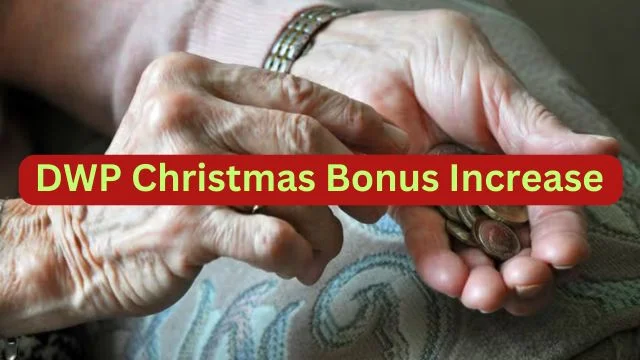DWP Christmas Bonus Increase, Eligible, Bonus Increase The bonus, which is usually paid in the first week of December, is a tax-free £10 payment given to people on certain benefits. Recipients include people on Carer’s Allowance, Pension Credit, Personal Independent Payment (PIP).The Christmas bonus figure has been set at £10 since 1972, and an online petition calling for it to be increased in line with inflation over those 52 years has now garnered more than 17,000 signatures.

If the bonus is increased in line with inflation over the 52 years, it would take the payment to £114.75. Pensioners, vulnerable and disabled people like me could use an extra boost at this time of year, especially when energy support has been abolished. “This isn’t a call for ‘just another handout’. It’s for those of us who have no option to earn anything extra. “Then we respectfully request that our Christmas bonus please be increased in line with or above inflation.”
Who Is Eligible For The Christmas Bonus?
- To be eligible for the Christmas bonus, individuals must be physically present or currently residing in the UK, Channel Islands, Isle of Man or Gibraltar during the qualifying week. Officially announced later this year, this qualifying week will run from December 2, 2024 to December 8, 2024.
- Find out the benefits available to UK residents living in or visiting a European Economic Area (EEA) nation or Switzerland. You must also receive at least one of the following benefits during the ‘qualifying week’, which is often the first full week of December.
Are You Eligible For The DWP Christmas Bonus
To be eligible for the payment, you must be receiving Universal Credit as well as one of the following benefits.
- You will need to be receiving the relevant benefit in the qualifying week, which will probably be the first week of December.
- The full list of eligible benefits includes:
- Armed Forces Independence Payment
- Attendance Allowance
- Carer’s Allowance
- Child Disability Payment
- Continuous Attendance Allowance (paid under the Industrial Injuries or War Pension schemes)
- Contribution-based Employment and Support Allowance (after entering the main phase of benefits after the first 13 weeks of claim)
- Disability Living Allowance
- Disability Benefit at the long-term rate
- Industrial Death Benefit (for widows or widowers)
- Mobility Supplement
- Pension Credit – guaranteed element
- Personal Independence Payment (PIP)
- State Pension (including Graduated Retirement Benefit)
- Severe Disability Allowance (transitionally protected)
- Unemployment Supplement or Allowance (paid under the Industrial Injuries or War Pension schemes)
- State Pension War Disability Pension at Age 1
- War Widow’s Pension
- Widow Mother’s Allowance
- Widow Mother/Father’s Allowance
- Widow Pension
People who meet certain requirements are automatically awarded a Christmas bonus. Generally, everyone receiving certain DWP qualifying benefits is entitled to the bonus. If you haven’t claimed your state pension and are eligible for one of the other qualifying benefits, you won’t get a Christmas bonus.
Married or cohabiting couples and civil partnerships
- According to DWP guidelines, if you are in a married relationship, in a civil partnership, or living together, and you both get one of the qualifying benefits, you will both be sent separate Christmas bonus payments.
If both of the following apply, your spouse or civil partner may still be eligible for a Christmas bonus, even if they don’t get one of the qualifying benefits:
- By the end of the qualifying week, you are both over state pension age.
- During the qualifying week, your spouse or civil partner was also present (or “ordinarily resident”) in the UK, the Channel Islands, the Isle of Man, Gibraltar, a European Economic Area (EEA) nation, or Switzerland.
One of the following must also be true:
- Your spouse or civil partner is entitled to an increase in qualifying benefits.
- Your only qualifying benefit is Pension Credit.
The Economic And Social Implications Of The Christmas Bonus Increase
Raising the Christmas bonus could have both positive and negative effects on the UK economy. On the one hand, it would provide immediate financial support to some of society’s most vulnerable people.
- By giving more money to potential buyers, the government could boost economic activity in underdeveloped areas.
- On the other hand, opponents of increasing the Christmas bonus argue that it could put further pressure on an already strained support system.
- Taxpayers would bear the cost of increasing the incentive; in the current budgetary environment, when public services are already strained, some wonder whether the government could afford to pay more.
- Increasing the Christmas bonus raises the question of whether it will set a benchmark for further increases in other areas of the social system, hence encouraging excessive spending. People who receive certain DWP benefits are paid a one-off Christmas bonus.
Important Links
| Home Page | Click Here |